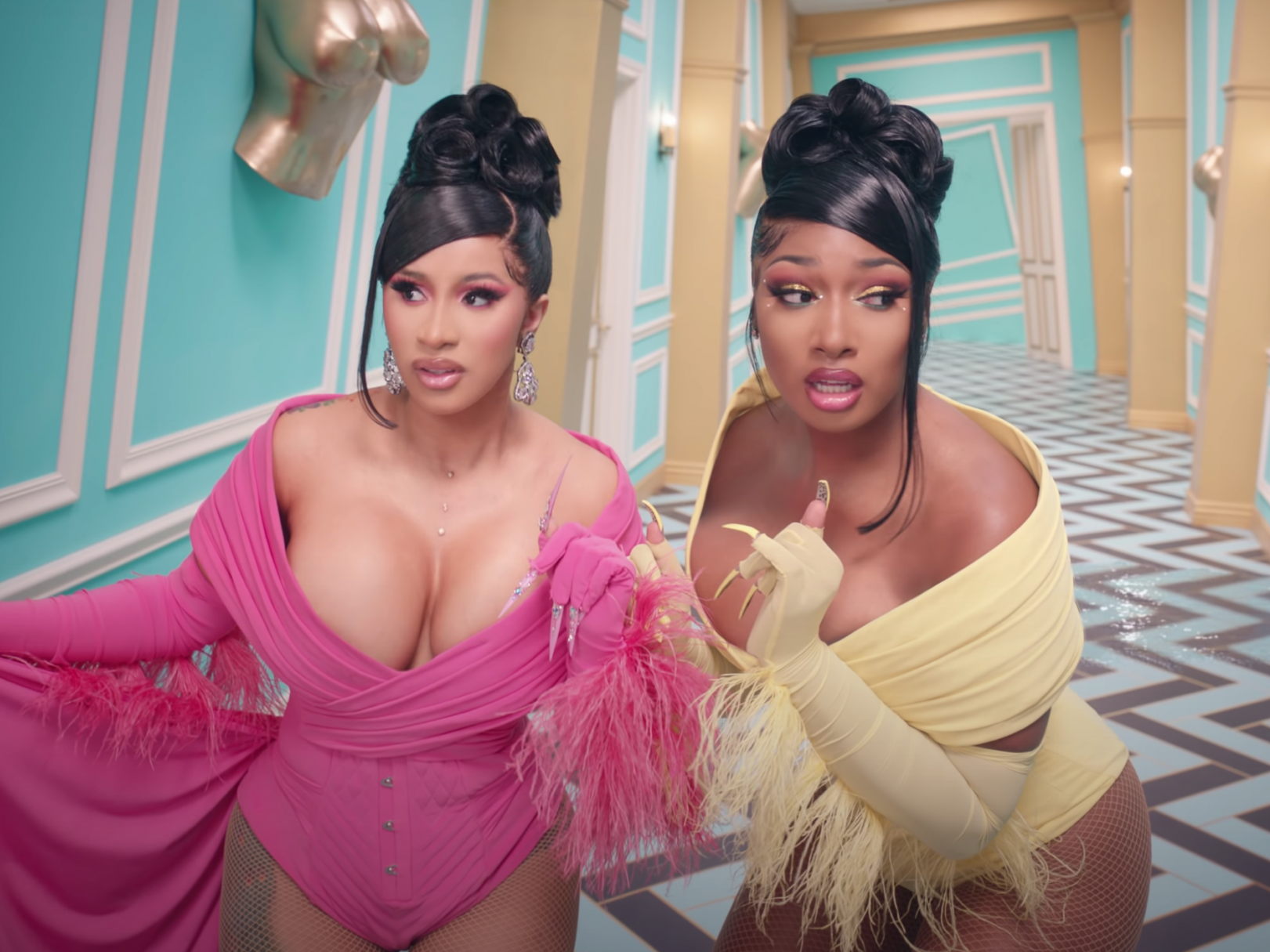That’s a WAP: How the Cardi B anthem captured the spirit of 2020
Cardi B and Megan Thee Stallion’s horny hit was the undeniable smash of the year – but its success was about more than just nether regions, writes Micha Frazer-Carroll


Your support helps us to tell the story
From reproductive rights to climate change to Big Tech, The Independent is on the ground when the story is developing. Whether it's investigating the financials of Elon Musk's pro-Trump PAC or producing our latest documentary, 'The A Word', which shines a light on the American women fighting for reproductive rights, we know how important it is to parse out the facts from the messaging.
At such a critical moment in US history, we need reporters on the ground. Your donation allows us to keep sending journalists to speak to both sides of the story.
The Independent is trusted by Americans across the entire political spectrum. And unlike many other quality news outlets, we choose not to lock Americans out of our reporting and analysis with paywalls. We believe quality journalism should be available to everyone, paid for by those who can afford it.
Your support makes all the difference.Certified freak, seven days a week.” This was the simple rhyming couplet that kicked off the explicit No 1 hit of the summer, Cardi B and Megan Thee Stallion’s “WAP”. When it comes to the rest of the song, I’ll have to stop quoting at the second line or else I’ll get in trouble with my editor. What proceeds is a track that pulls no lyrical punches when it comes to the two rappers describing sex, in what The New York Times describes as a “brazenly graphic anthem of lubrication”.
As the salacious and slippery song topped the global Spotify charts, it disgusted US conservatives such as commentator Ben Shapiro, but delighted sex-positive listeners by pushing the boundaries of what it was possible to discuss in a No 1 pop song.
In recent weeks, the sexually poetic tour-de-force has seen a renaissance in relevance, topping 2020 round-up lists of the most Googled terms of the year and scooping both NME and Pitchfork’s song of the year. So, at the risk of over-intellectualising things, I’ve been reflecting on how the song captured the spirit of a year of social and political crisis, as well as what its success says about the changing shape of the industry.
Not much has been said or written about the social context of the song, but there’s something interesting about this specific single gaining success in the midst of a global pandemic. Released in the wake of Covid’s first wave, the absurdist video – which looks like a mash-up of an M C Escher drawing and the interior of Willy Wonka’s chocolate factory – feels as if it were taking place in an alternative universe. With monochrome zig-zag floors, snakes and tigers sitting regally in garish hotel rooms, and leopard print nipple covers, it’s ludicrously excessive but utterly hypnotic – a fast-paced assault on your synapses, released at a moment when the world had slowed.
Lyrically, the song’s most evocative writing, from it’s onomatopoeic title to lines like, “Bring a bucket and a mop… macaroni in a pot” were also a welcome plunge into ridiculousness in a summer otherwise marked by seriousness. The finished product, which is all about flamboyance and pleasure-seeking, seems so out of step with the song’s social and political backdrop that it almost feels as if it was created before the pandemic (but having spent $100,000 on Covid testing for the music video, the makers can assure you, it was not).
And then there’s the sexual climate in which the song was released. With a slow, bassy riff that loops under a sample of Frank Ski’s Baltimore house classic “Whores in this House”, “WAP” is undeniably a sensual club banger. But it topped the charts after both casual sex and clubbing had been firmly curtailed by governments across the world. And so, much like Ariana Grande’s subsequent album Positions, the song became a sort of vessel for Covid listeners to be nostalgically horny on main – except not only for sex, but also for nights out lost to lockdown. As The Onion editor Taylor Garron put it: “We as a society have yet to experience ‘WAP’ in a club context… it may be too powerful.”
Then, naturally, come the culture wars. Although Cardi B mocked Shapiro after he slowly read out the lyrics on his show and called them “vulgar”, part of the song’s intrinsic appeal is undoubtedly tied to its ability to cause outrage. There are patterns here that have played out before – women (particularly black women) and other marginalised people have always been greeted with pearl clutching when they sing about their sex lives; think Madonna’s “Like a Virgin” or Salt-N-Pepa’s “Let’s Talk About Sex".
Anyone left of centre (particularly young people) knows that half of the fun of “WAP”, which builds on the legacies of sexy hits from times gone by, lies in baiting and upsetting reactionaries like Shapiro. Aided by skyrocketing screen time during the pandemic, “WAP” quickly became meme-ish shorthand for flying in the face of conservatism. It also served as an informal musical litmus test for whether you are stuffy or cool: if you are a parent who smiles or bops along in viral “WAP” reaction videos, then you pass, as do young, left-wing women of colour in politics like Alexandria Ocasio-Cortez and Nadia Whittome, both of whom have boasted that they love the song. Notably, both jokingly tied the song to their own political leaning, with Ocasio Cortez teasing that the acronym stood for “Women Against Patriarchy” and Whittome lamenting that she had accidentally made the faux pas of playing it in front of two Tory MPs.
Beyond virality, there are other aspects of the song’s reign that exemplify how the internet has left a mark on the music industry. Notably, explicit lyrics pose a much smaller threat to chart success than they did before online streaming, so artists and producers are given more freedom to be provocative if they want to. As a side effect of this, the cleaned up version (which in previous decades might have been crucial for sales) is a flimsy and almost farcical front for the true content of the song; instead of “WAP”, the singers boast of “wet and gushy”. Of course, pretty much anyone can hear the true acronym if they log on to Spotify or TikTok – but that is all part of the tongue-in-cheek joke, which is now bigger than the song itself.
Enjoy unlimited access to 100 million ad-free songs and podcasts with Amazon Music
Sign up now for a 4 month free trial (3 months for non-Prime members)
Enjoy unlimited access to 100 million ad-free songs and podcasts with Amazon Music
Sign up now for a 4 month free trial (3 months for non-Prime members)
While it’s easy to underestimate the political power of a pop song that is in essence about getting very turned on, in actuality the phenomenal success of “WAP” provides a unique snapshot into a year characterised by crisis, lockdowns, culture wars, an increased reliance on social media, and shifting creative industries. Although the spirit of “WAP” is ultimately jovial, there were very specific things listeners needed in 2020: stimulation; political fun; escapism; connection – and lots and lots of sex. “WAP” gave us all of that.
